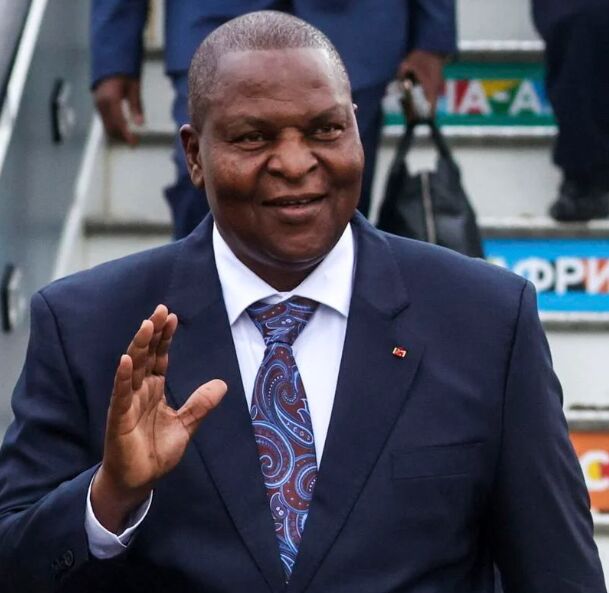President of Central African Republic Pushes to Scrap Term Limits with Russian Support, Raising Concerns of Authoritarian Rule
Central African Republic President Touadéra seeks to remove term limits with support from Russia's Wagner mercenary group, raising concerns about political influence and potential threats to stability and democracy. Critics denounce the referendum as a power consolidation move.
In a bid to extend his stay in power, Central African Republic's President Faustin-Archange Touadéra is urging voters to support the abolishment of term limits in a referendum that has received the backing of Russia's Wagner mercenary group.
Wagner, known for its troops and business interests in the country, is providing security for the referendum, raising concerns about its influence on the political landscape. The main opposition has denounced the referendum and called for a boycott, accusing President Touadéra of aiming to become a president-for-life. Touadéra has strengthened ties with Russia following the withdrawal of French forces in 2022.
Proponents of the constitutional changes argue that the region seldom imposes limits on presidential terms, and the proposed amendments will contribute to stability and development. The Central African Republic has a long history of coups and uprisings, with a formidable coalition of rebel groups attempting to overthrow President Touadéra.
Wagner's leader, Yevgeny Prigozhin, divulged that hundreds of his fighters have arrived in the resource-rich country as part of a pre-referendum rotation. Prigozhin claims that they control the territory of the Central African Republic and are determined to protect the population from criminal gangs.
The referendum, which has support from a UN peacekeeping mission, is perceived as a critical event for Touadéra's government. Wagner has been a vital ally for the President, both in maintaining power and combating rebel groups.
The mercenary group has maintained a presence in the Central African Republic since 2018 and has developed considerable business interests, particularly in the minerals and timber industries. The growing reliance on Wagner has raised concerns about the potential implications for national sovereignty.
The recent photograph of Prigozhin shaking hands with Ambassador Freddy Mapouka, a presidential advisor, at a Russia-Africa summit in St Petersburg has further fueled speculation about the extent of Russian influence in the country. France, the nation's former colonial power, withdrew its remaining forces in 2022.
The country initially deployed approximately 1,600 troops to the Central African Republic following a coup in 2013 that led to a civil war. President Touadéra was elected in 2016 as part of the country's efforts to restore democracy and secured a second term in 2020.
However, critics argue that Touadéra has increasingly displayed authoritarian tendencies, and the referendum is viewed as another attempt to consolidate his power. If the proposed changes to the constitution are approved, President Touadéra would be able to seek a third term in 2025.
The presidency's term would also be extended from five to seven years, and the president would have the authority to appoint additional judges to the Supreme Court. The outcome of the referendum will undoubtedly shape the future political landscape of the Central African Republic and have significant implications for its stability and democratic processes.




